Yesterday, October 22, the National Assembly's Committee on Culture andEducation (CEC) sent to National Assembly deputies a report on the results of monitoring the implementation of policies and laws on doctoral training. In addition to assessing the current status of doctoral training, the report also made a number of recommendations that reflect new perspectives in line with international integration trends, such as considering doctoral training as elite training and proposing state support policies for doctoral training.
The report also repeatedly mentioned the concept of academic integrity as a requirement that PhD training needs to build and form; criticized the tendency of misleading PhD motivations, for the sake of degrees, not serving professional requirements.
COST FOR DOCTORAL TRAINING IS ONLY 16 MILLION VND/YEAR
According to the Committee for Culture and Education, investment in the field of higher education in general and doctoral training in particular is still low. The proportion of state budget spent on higher education in the past 3 years has only reached 4.33 - 4.74% of the total budget expenditure on education and training (approximately 1% of the total state budget expenditure).
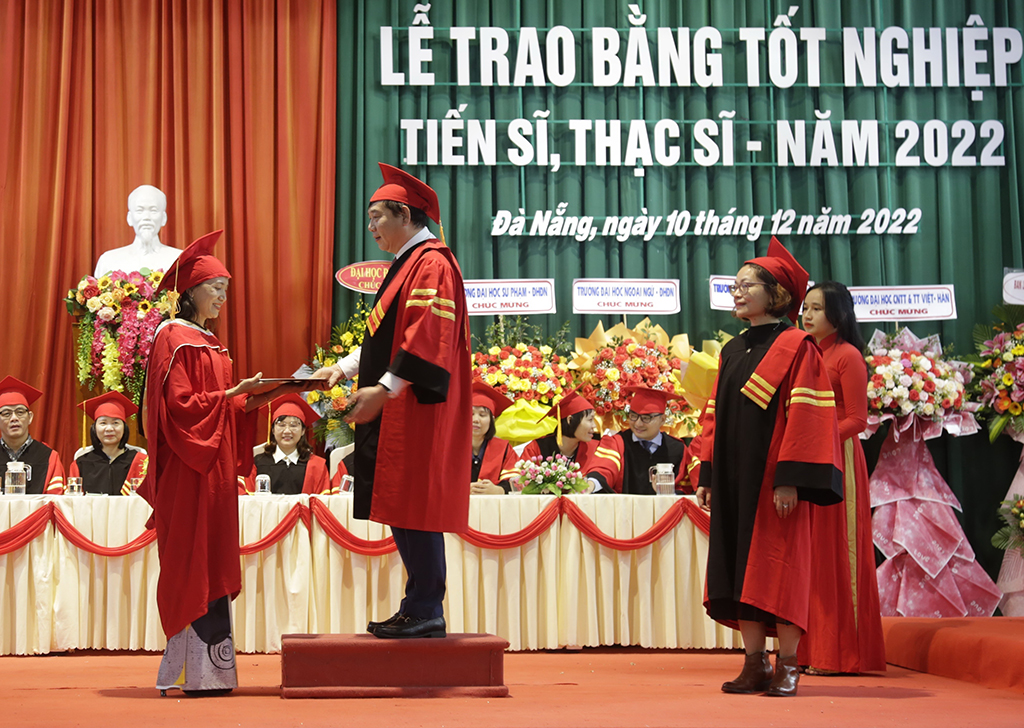
The Committee on Culture and Education proposes to have regulations to guide strategic goals and long-term vision in building and developing a team of PhDs as an elite group.
The cost of training a PhD at public universities is currently about 16 million VND/year on average (except for the health sciences field, which is about 32 million VND/year), much lower than the cost of training a PhD in some countries in the region and the world. Therefore, domestic PhD training institutions face many difficulties in ensuring favorable conditions for PhD students to conduct research, access documents, and the latest scientific publications for reference and to improve the quality of their thesis.
The mechanism, policies on scholarships and financial support for doctoral students have not received due attention. Meanwhile, in many countries around the world and the region, doctoral students not only do not have to pay tuition fees but also receive scholarships with enough to cover monthly living expenses and funding to complete their doctoral thesis, and even receive salaries when participating in teaching assistantships or research with their supervisors (such as in the US, Korea, Singapore, etc.). In Vietnam, doctoral students have to pay tuition fees and have limited access to research funding from training institutions.
Currently, the state only has a financial support mechanism for graduate students selected under the project to improve the capacity of lecturers and managers of higher education institutions in the period of 2019 - 2030, including: financial support for thesis implementation (from 13 - 20 million VND/student/year and no more than 4 years); support for publishing international scientific articles; support for attending international conferences, seminars or short-term internships abroad (once during the entire training process).
74.4% of the workforce is only given 6.91% of the budget "pie"
The budget for research and development activities at universities is still modest, not commensurate with the capacity and potential of the schools. The proportion of staff doing research and development with a PhD degree or higher at universities accounts for 74.4% (16,810 people) of the total 22,578 PhDs nationwide. Meanwhile, spending on research and development at universities and academies accounts for only 6.91% of the total spending on this activity.
DOCTORAL TRAINING IS ELITE TRAINING
According to the Committee for Culture and Education, to improve the quantity and quality of doctoral training, it is necessary to effectively implement a number of orientations, tasks, and solutions, including thoroughly understanding the viewpoint that doctoral training is elite training.
Pay attention to the harmonious development of quantity and quality in PhD training; control input quality, improve output quality standards. Have mechanisms and policies to prioritize PhD training in industries and fields that directly serve the promotion of industrialization, modernization, high-tech industries, and core technologies.
Another solution proposed is to strengthen the conditions for quality assurance. And in particular, it is necessary to increase investment resources, especially public investment for research, application and technology transfer. Improve financial mechanisms, change the method of funding allocation for training and research to the form of ordering, bidding, and assigning tasks.
Prioritize state budget investment in basic sciences and necessary research fields where the state needs high-quality human resources but has difficulty attracting students. Develop policies to support scholarships and support scientific research funding for doctoral students with excellent research and study results, and highly applicable topics/theses. Develop and promulgate a set of standards for assessing the quality of PhD training activities and minimum standards for assessing the quality of PhD theses in each field in line with international standards.

Develop policies to support scholarships and scientific research funding for graduate students with excellent research and study results, and highly applicable topics/theses.
Based on the above assessments, the Committee on Culture and Education proposes to the National Assembly that there should be a specialized resolution on policy orientation to promote and encourage the development of training of high-quality human resources, including regulations on strategic goals and long-term vision in building and developing a team of PhDs as the elite in the team of high-quality human resources; there should be mechanisms and policies to use and promote the team of intellectuals with PhD qualifications.
At the same time, the resolution also needs to clarify the roadmap to increase the proportion of state budget expenditure on higher education as a percentage of GDP to reach the average level of countries in the region; increase investment levels for doctoral training in particular and postgraduate training in general, ensuring the effectiveness and quality of training high-level human resources. There is a focus on investment orientation for higher education institutions with potential and quality of training and scientific research in the system, especially in a number of priority sectors and fields to form a number of international-class higher education institutions, with a pioneering role, the task of leading the system, creating momentum for science and technology development and socio-economic development.
The motivation for doing a PhD is still distorted due to the emphasis on degrees.
The report of the Committee for Culture and Education stated that, in terms of enrollment structure, about 60 - 70% of candidates come from educational and training institutions and research institutes. About 30% of candidates are working at management and administrative agencies (candidates from other entities such as private enterprises or other units account for an insignificant proportion). This figure is a basis for assessing the causes of some shortcomings in the current state of PhD training. The Committee for Culture and Education pointed out that "the trend of focusing on degrees in the use and management of staff leads to a deviation in the motivation to become a PhD of many graduate students".
Regarding the scale of training, although the period 2000 - 2001 had a remarkable growth, the current enrollment situation is very difficult. The rate of successful candidates is much lower than the target, the average in recent years is only about 32%, leading to many places having no competition, giving rise to laxity in admission selection, especially in terms of professional research capacity.
Regarding training quality, the Culture and Education Committee believes that the assessment of the quality of doctoral theses in particular and the quality of doctoral training in general is not uniform throughout the system. There is a phenomenon of leniency in establishing thesis evaluation councils; there is also a state of favoritism when approving theses with practical value, low scientific content, and narrow scope of impact...
The thesis re-evaluation process is still heavy on procedures and formalities and has not really been effective. In particular, the report also noted the current situation of "no general regulations on research ethics and academic integrity; no common software and a large enough database have been built to prevent and combat plagiarism in training, research and publication of scientific works and doctoral theses".
Source link







![[Photo] Prime Minister Pham Minh Chinh chairs a meeting on the implementation of the Lao Cai-Hanoi-Hai Phong railway project.](https://vphoto.vietnam.vn/thumb/1200x675/vietnam/resource/IMAGE/2025/5/20/0fa4c9864f63456ebc0eb504c09c7e26)








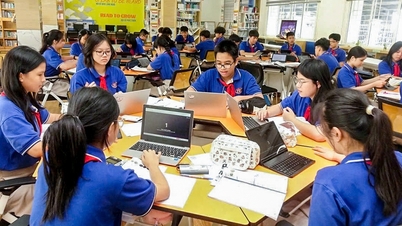








![[Video] Reducing pressure on students and parents when enrolling students](https://vphoto.vietnam.vn/thumb/402x226/vietnam/resource/IMAGE/2025/5/20/65c99b421e0a4647980764de9c76846a)







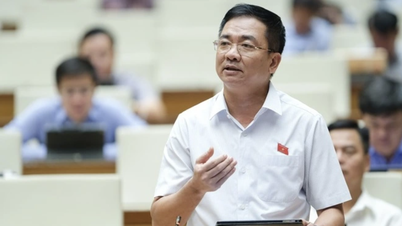











































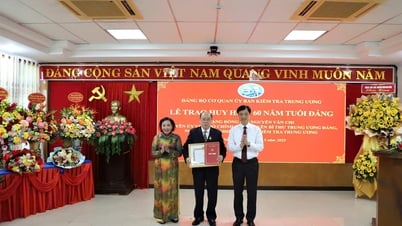











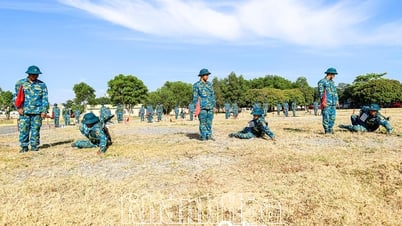












Comment (0)